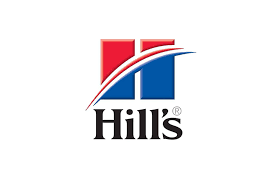 December 15, 2020
December 15, 2020
Hill’s Pet Nutrition Survey Finds Pandemic Fueling Pet Obesity
While the Covid-19 pandemic has significantly impacted everyday life this year, it’s also taken a toll on our furry best friends’ eating habits, activity level and weight that could affect their quality of life. Insights from a new survey from Hill’s Pet Nutrition, conducted in partnership with Kelton Global, reveal that while overweight pets and pet obesity has been on the rise for years, Covid-19 has intensified this issue. According to veterinarians, more than 71 percent of pet professionals say the pandemic has impacted the way pets eat.
OVERWEIGHT PETS: EVOLVING DURING Covid-19
Since the start of Covid-19, one third (33 percent) of pet parents with an overweight pet say their pet became overweight during the pandemic. While a majority of pet parents (73 percent) say they would feel confident in knowing their pet is overweight without professional guidance, veterinarians state that only 12 percent of pet parents proactively flag concerns with their pet’s weight. Moreover, nearly two in three veterinarians say pet parents act surprised (64 percent) or defensive (64 percent) upon learning about their pet’s weight issues.
IRONICALLY, TOO MUCH ‘TREAT LOVE’ DURING THESE DIFFICULT TIMES IS THE MAIN CULPRIT
With people spending more time at home during the last nine months, treats are often given as a form of love, with more than half (53 percent) of pet parents saying they’ve been giving their pets treats for no reason. Now with the holiday season in full swing, it’s likely going to get worse before it gets better, with nearly 64 percent of pet parents admitting they spoil their dog or cat during the holidays. As a result, 6 in 10 veterinarians say they anticipate the dogs and cats they see in January are more likely to be overweight or obese.
HOLIDAY SEASON MAY MEAN MORE POUNDS
Knowing that pet parents admit to spoiling their pets around the holidays, making people more aware of this change in behavior could help to manage their pet’s weight problems. Approximately 36 percent of pet parents say their pet normally gains weight over Thanksgiving, Christmas, Hanukkah and New Year’s, and 44 percent say they expect their pet (and themselves!) to gain weight this season. Veterinarians admit that giving treats in moderation is not an issue, with 56 percent advising that the occasional treat is fine, however 91 percent recommend giving fewer table scraps.
MANAGING A PET’S WEIGHT IS HARDER NOW
Surprisingly, the majority of pet parents (52 percent) think it is easy to help their dogs or cats lose weight, but veterinarians disagree, with 91 percent saying it’s harder than owners think. However, those with overweight pets (31 percent with overweight dogs and 24 percent with overweight cats) feel it’s harder to help their pet lose weight compared to before Covid-19, and 49 percent of veterinarians agree it’s harder for pet parents to keep their pets at a healthy weight during the pandemic than before. Ultimately, veterinarians overwhelmingly recommend giving fewer treats (92 percent), more exercise (91 percent) and fewer table scraps (90 percent).
IT’S EASIER SAID THAN DONE TO CHANGE BEHAVIORS
Most pet parents know monitoring treats is a key way to help their pets lose weight. Nearly half (49 percent) say giving fewer treats would help their dog or cat lose weight, just ahead of exercising more (48 percent) and giving less food during meals (41 percent). Pet parents are even willing to make sacrifices themselves, or even give up things they really enjoy if it would help their pet lose weight, with nearly half (49 percent) saying they’d be willing to go on a diet to help their pet have a healthy weight. They are also willing to give up technology, with 31 percent saying that they would stop checking social media for a month to help their pet lose weight!
“Hill’s Pet Nutrition is committed to ending pet obesity, so all pets can live long, healthy lives with their beloved families,” said Dr. Marina Debernardi, DVM PhD, Global Chief Professional Veterinary at Hill’s Pet Nutrition. “We hope these new insights will help pet parents think differently about how they can express their love to their pets and spark conversations with their veterinarians. A simple step is to start with better nutrition and becoming more aware of your feeding habits and the impact it can have your pet’s life.”
For more resources and education on pet weight management, and to view new animated mini-movies sharing the weight loss journey of ‘Poochini ‘and ‘Moto’, click here.
